It’s been a tough year for Facebook — and for a good number of Facebook page admins working in higher education.
While the jury is still out on the real impact of the Facebook algorithm change introduced at the beginning of the year, I have seen several instances of decreased organic reach reported in the higher ed social media online communities.
The jury is still out, but Melissa Cheater, Digital Content Manager at Western University, will share in 10 days the results of her research on Facebook reach and engagement in the US and Canada, a data project we first discussed in March and she presented at PSEWeb this summer. If you’re going to the 2019 HighEdWeb Conference in Sacramento, don’t miss Melissa’s session on Oct 23 at 10:45AM PT as it promises to be really interesting.
Considering how engagement and reach on Facebook have evolved at many schools over the past 12 months, it’s fair to wonder what should be done on Facebook in 2019.
That’s exactly the question I asked the 12 higher ed web professionals speaking at the 6th Higher Ed Social Media Conference. Nobody has the definite answer to this question, because it really depends on your school, its goals and its Facebook audience, but keep reading to see what 12 of your colleagues plan to do!
Analyzing data for Jessica Stutt, Integrated Marketing Manager at University of New Brunswick
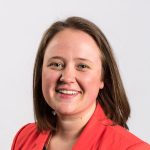 Facebook continues to be a major platform for us both for paid and organic reach. From our paid advertising campaign down to more organic promotion of campus events, our strategy in 2019 is to work to evaluate performance to gain more insight into what’s working and what isn’t. We have definitely seen the same reach challenges I know other institutions are facing, but are still working to uncover the true meaning behind it.
Facebook continues to be a major platform for us both for paid and organic reach. From our paid advertising campaign down to more organic promotion of campus events, our strategy in 2019 is to work to evaluate performance to gain more insight into what’s working and what isn’t. We have definitely seen the same reach challenges I know other institutions are facing, but are still working to uncover the true meaning behind it.
Is it that our audience isn’t leveraging the platform as much, that Facebook is trying to push us even more to paid advertising, that our assets are not properly developed for the platform or something else?
We will focus even more in 2019 on evaluating our data to better understand insights before making major adjustments to our strategy.
Content on target for Mary Jo Stockton, Director of Web and Social Content at Longwood University
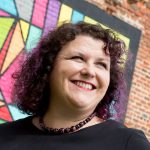 Before embarking on the redesign of our website back in 2014, we first went through a comprehensive branding process. The goal was not to rebrand Longwood University but to better understand who we are, who our audience is and what our audience wants from us.
Before embarking on the redesign of our website back in 2014, we first went through a comprehensive branding process. The goal was not to rebrand Longwood University but to better understand who we are, who our audience is and what our audience wants from us.
By focusing on producing that type of content and a process of brainstorming ideas collaboratively with our whole marketing team, we have been relatively successful in keeping our Facebook engagement rate increasing for the most part as demonstrated in the following chart.
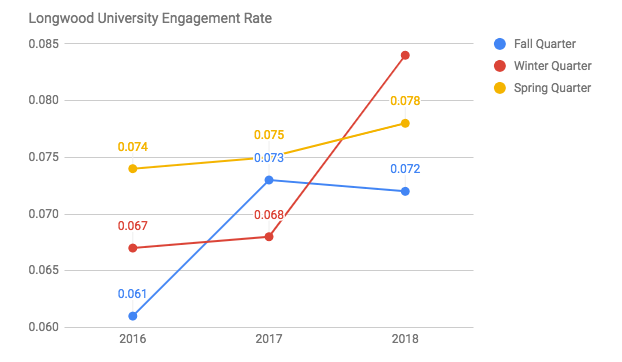
Focusing on Groups for Dominique Benjamin, Digital & Social Media Coordinator forTAMU Enrollment Services
 In Admissions, we’re all about Facebook Groups – not Pages. Several years ago we made the decision to not create an “Aggiebound†Facebook Page, because our audience just wasn’t there. By now, it’s common knowledge that Gen Z-ers don’t spend nearly as much time on the platform as they do elsewhere. For that reason, and so many more, I can’t imagine us ever creating a Page. That decision was even further validated by the announcement earlier this year by Mark Zuckerberg that the Almighty Algorithm would prioritize content from Groups over content from brands (i.e. Pages).
In Admissions, we’re all about Facebook Groups – not Pages. Several years ago we made the decision to not create an “Aggiebound†Facebook Page, because our audience just wasn’t there. By now, it’s common knowledge that Gen Z-ers don’t spend nearly as much time on the platform as they do elsewhere. For that reason, and so many more, I can’t imagine us ever creating a Page. That decision was even further validated by the announcement earlier this year by Mark Zuckerberg that the Almighty Algorithm would prioritize content from Groups over content from brands (i.e. Pages).
We, as many other schools do, manage a Facebook Group for admitted students. So far, we haven’t noticed a dip in activity over the last year, but it’s something we’ll keep an eye on, moving forward. Our Class of 2022 Group had more than 1.1K posts, 5K comments and 24K reactions.
Mostly, it serves as a place for them to find groups on “private†platforms like GroupMe and Snapchat. We’ve heard many students say they don’t otherwise use Facebook, but that they created an account just to join the class Group. In doing so, they get a preview of what the Texas A&M community is like.
Daily quality and groups for Geoff Coyle, Social Media Editor at West Virginia University
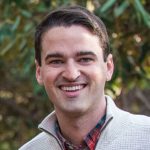 Our plan for the better part of the year, and going forward, is to lean on quality over quantity. We know we will post daily on Facebook, but the key is to make sure that as often as possible, we are putting in the time and effort to make at least one post per week stand out.
Our plan for the better part of the year, and going forward, is to lean on quality over quantity. We know we will post daily on Facebook, but the key is to make sure that as often as possible, we are putting in the time and effort to make at least one post per week stand out.
That could be a fully produced video like our Gold and Blue Planet series or a simple photo of one of our older residential complexes asking where our former students stayed while on campus. Each targeted different audiences, but each invited a great deal of engagement through comments and shares.
In the future, we hope to put some more focus on Facebook’s closed groups. This past year, we had a great deal of success with our Families of the WVU Class of 2022 group and we will continue to use those groups for each of the incoming freshman classes going forward as they tend to rank highly on Facebook.
Daily posts & format tweaks for Tiffany Broadbent Beker, Director of Digital Marketing at William & Mary
 On the Facebook channels that we manage in Advancement we’ve seen a significant decline in likes, comments and shares on our posts over the last year, even though our number of fans continues to increase.
On the Facebook channels that we manage in Advancement we’ve seen a significant decline in likes, comments and shares on our posts over the last year, even though our number of fans continues to increase.
To combat this, we’ve adjusted our content calendar so we are posting more frequently. Before, a “few†times a week was the goal, now it’s every day, in an attempt to cast a wide net with the types of content we share and have something we post come through in folks’ news feeds. We’ve also updated our approach for how we post links to our website, rather than using Facebook’s link preview we attach our desired photo and put the link URL in the post text.
We have been exploring boosting posts for particular initiatives, especially around major annual giving pushes like our giving day or fiscal year end, where we can more precisely track the ROI of promoting those posts.
Less but more relevant content for Tim Brixius, Digital & social media specialist at Franklin & Marshall College
 There is no doubt that our overall organic reach on Facebook has taken a hit from its highest point in the summer of 2016; numbers are down nearly 50%.
There is no doubt that our overall organic reach on Facebook has taken a hit from its highest point in the summer of 2016; numbers are down nearly 50%.
At the same time, our average interaction per post has been fairly consistent.
We have recently shifted to posting less content on Facebook, while making sure that what we do post is more relevant to the audience that matters most to us there, our alumni. We have slightly increased the amount we spend for paid reach and will likely continue doing so in 2019.
Stories for Dr. Kristin Austin, Assistant Professor at Bloomsburg University of PA
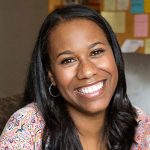 A challenge we encountered in the past is that of keeping prospective students engaged in our social media feeds. In targeting prospective students, we also know they are following several other institutions. Thus, it is always a challenge to balance promoting only the social side of college, in exchange for potentially under-promoting the academic experience. Sometimes, live-streaming at a concert is a lot more attractive than live-streaming a lecture.
A challenge we encountered in the past is that of keeping prospective students engaged in our social media feeds. In targeting prospective students, we also know they are following several other institutions. Thus, it is always a challenge to balance promoting only the social side of college, in exchange for potentially under-promoting the academic experience. Sometimes, live-streaming at a concert is a lot more attractive than live-streaming a lecture.
Our plan for 2019 is to do more with the stories feature, allowing for current student takeovers that walk students through a “day in the life” of a student at Bloomsburg University.
More videos for Hillary Green, Digital Specialist at The University of Texas at Arlington
 I used to consider Facebook our primary platform as an institution, because it garnered so much engagement. Obviously, that’s changed for businesses platform-wide and we’ve all had to adapt.
I used to consider Facebook our primary platform as an institution, because it garnered so much engagement. Obviously, that’s changed for businesses platform-wide and we’ve all had to adapt.
Video has shown to be our best avenue for engagement, particularly the more content-driven pieces. We plan to dive further into video including a new in-depth series with our athletics department as well as exploring 360 more. We’ll also be focused on turning that engagement on social into clicks back to our website by better integrating our social and web campaigns.
Boosting posts and co-hosting events for Erika Forsack, Social Media Strategist at Virginia Commonwealth University
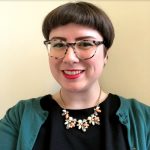 We are currently restructuring our boosting strategy in light of “Facebook Zero” and other recent algorithm changes. I can’t take credit for the work on our Facebook page, that’s all my counterpart Megan Schmidt.
We are currently restructuring our boosting strategy in light of “Facebook Zero” and other recent algorithm changes. I can’t take credit for the work on our Facebook page, that’s all my counterpart Megan Schmidt.
Another thing we’re really pushing right now is co-hosting events with other VCU-owned Facebook pages, not only for more visibility for them and the event, but this is also a great way to ensure that the event information is accessible to blind and low vision users who wouldn’t be able to otherwise access the information on just a flyer/graphic.
Fine-tuning and boosting posts for Nicole Morell, Associate Director, Digital Marketing Strategy at MIT Alumni Association
 Like many higher ed pages, we’ve seen our reach limited on many posts over the last year, resulting in lower engagement across the board.
Like many higher ed pages, we’ve seen our reach limited on many posts over the last year, resulting in lower engagement across the board.
Facebook reach has changed many times over in my four years working in social media for the MIT Alumni Association, but last year has been the most challenging by far. Still there is some hope. We continue to see our stories related to pride and nostalgia performing well in reach and engagement.
The plan for 2019 is to continue to push content that has demonstrated results in reaching and connecting with our alumni audience—this will mean boosting new posts that are performing well and streamlining our content creation and sharing.
Broaden the paid strategy for Christen Gowan, Associate Director of Media Relations and Social Media at Union College
 I think we’ll continue to broaden our paid media strategy in 2019. With organic reach at an all-time low, it’s super important to make sure we’re reaching the right audiences.
I think we’ll continue to broaden our paid media strategy in 2019. With organic reach at an all-time low, it’s super important to make sure we’re reaching the right audiences.
We use Evertrue to pull custom audience lists for Facebook. This can sometimes be based on giving data (when it’s for fundraising purposes) or social engagement data (when we’re trying to reach our most engaged group on social media).
Keep playing for Todd Sanders, Director of Digital Communications and Social Media at UF
 Our Facebook plan for 2019 is identical to 2018: keep playing, keep posting.
Our Facebook plan for 2019 is identical to 2018: keep playing, keep posting.
We can’t control organic reach, we can control the content we post.
Post shareable content and it will find its way into the hands of your community.
A conference focusing 100% on higher ed social media?
The 6th Higher Ed Social Media Conference (HESM18) is a must-attend event for higher ed social media professionals and teams looking for inspiration, ideas and best practices to get ready for 2019.
Read below what your higher ed colleagues who attended the past editions of the Higher Ed Social Media Conference said about their experience.




